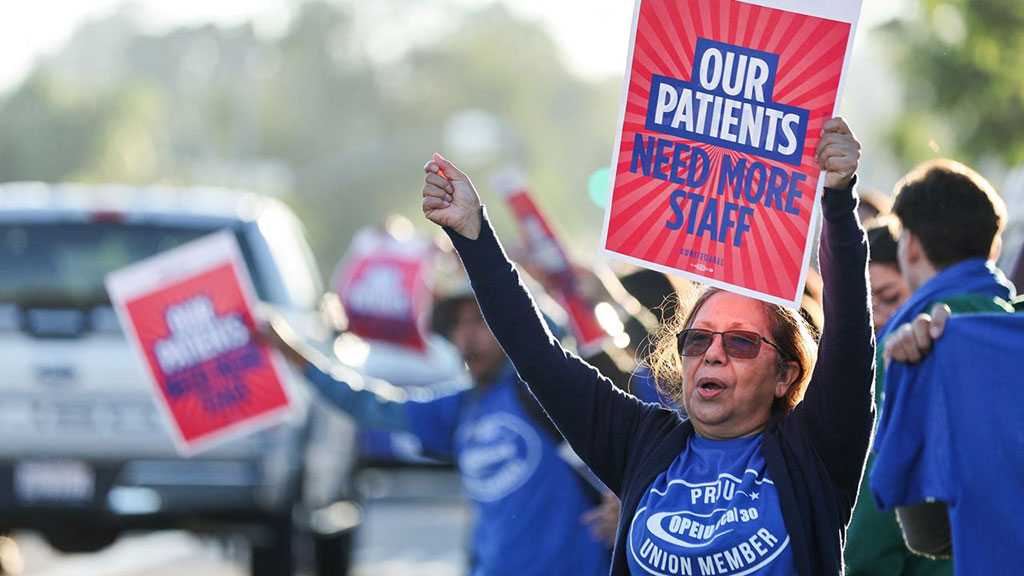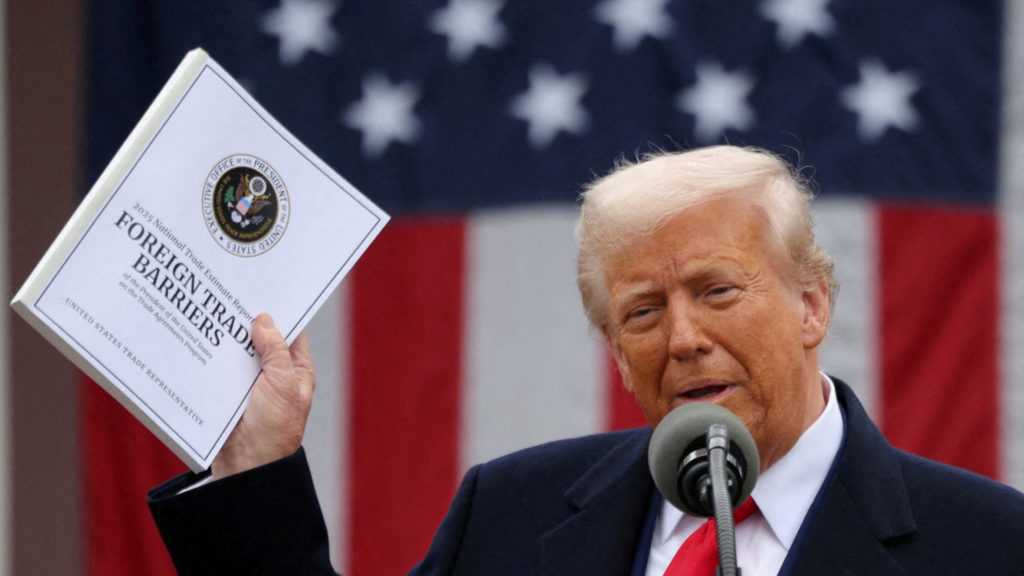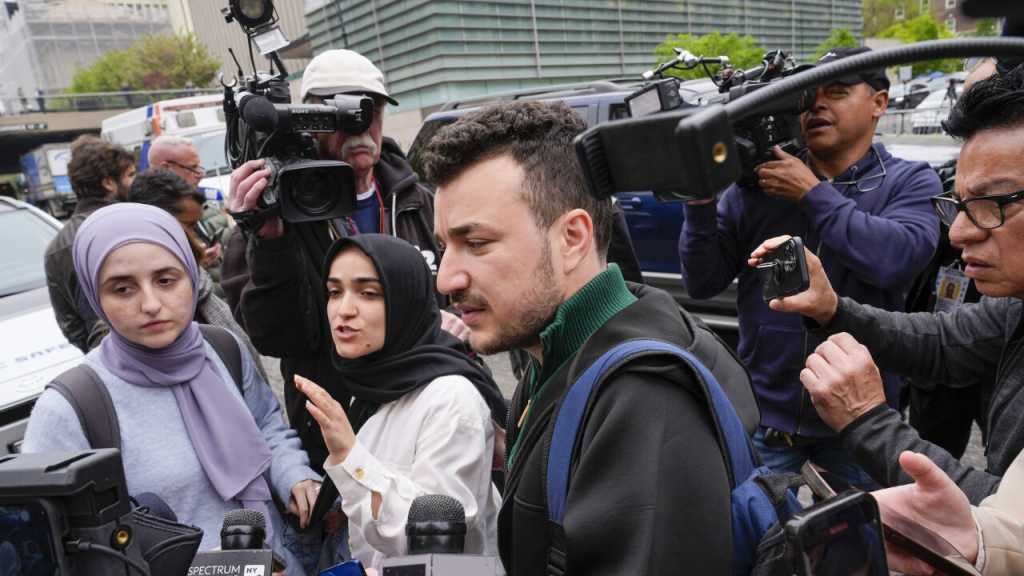Biggest US Health Care Strike: Kaiser Workers Walk out of Hospitals

By Staff, Agencies
Tens of thousands of Kaiser Permanente workers took to picket lines in multiple US states on Wednesday, launching a massive strike that the company warned could cause delays at its hospitals and clinics that serve nearly 13 million Americans.
The Coalition of Kaiser Permanente Unions, representing about 85,000 of the health system’s employees nationally, approved a strike for three days in California, Colorado, Oregon and Washington.
Some 75,000 people were expected to participate in the pickets. That includes about 180 workers from facilities in Virginia and Washington, D.C., who planned to picket only one day since many had to travel long distances to converge in Springfield, Virginia, on Wednesday, according to Local 2 Secretary-Treasurer Sarah Levesque.
The Oakland, California-based nonprofit company said its 39 hospitals, including emergency rooms, will remain open. Doctors are not participating, and Kaiser said it was bringing in thousands of temporary workers to fill the gaps. Still, appointments and non-urgent procedures could be pushed back.
Kaiser said in a statement late Wednesday that while no contract deal was reached, there were tentative agreements on a number of unspecified issues. The company said it would “reconvene bargaining as soon as possible.”
The union coalition said it was “awaiting a meaningful response from Kaiser executives regarding some of our priorities,” including demands for pay raises and increased staffing. “Currently, the strike continues, and there are no sessions scheduled at this hour,” said a coalition statement Wednesday night.
Early Wednesday, workers at Kaiser Permanente Los Angeles Medical Center cheered as the strike deadline arrived. The strikers include licensed vocational nurses, home health aides and ultrasound sonographers, as well as technicians in the radiology, X-ray, surgical, pharmacy and emergency departments.
The strike comes in a year when there have been work stoppages within multiple industries, including transportation, entertainment and hospitality.
At least 453,000 workers have participated in 312 strikes in the US this year, according to Johnnie Kallas, a Ph.D. candidate and the project director of Cornell University’s Labor Action Tracker. That figure includes Kaiser workers.
The health care industry alone has been hit by several strikes this year as it confronts burnout from heavy workloads — problems that were exacerbated greatly by the COVID-19 pandemic.
Unions representing Kaiser workers in August asked for a $25 hourly minimum wage, as well as increases of 7% each year in the first two years and 6.25% each year in the two years afterward.
Union members say understaffing is boosting the hospital system’s profits but hurting patients, and executives have been bargaining in bad faith during negotiations.
Kaiser Permanente’s operating revenue climbed 7% in this year’s second quarter to more than $25 billion. The health care giant said in August that strong investment income helped it turn a $2.1 billion profit for the quarter, swinging from a $1.3 billion loss a year earlier. However, the company said it was still contending with inflation and labor shortages.




